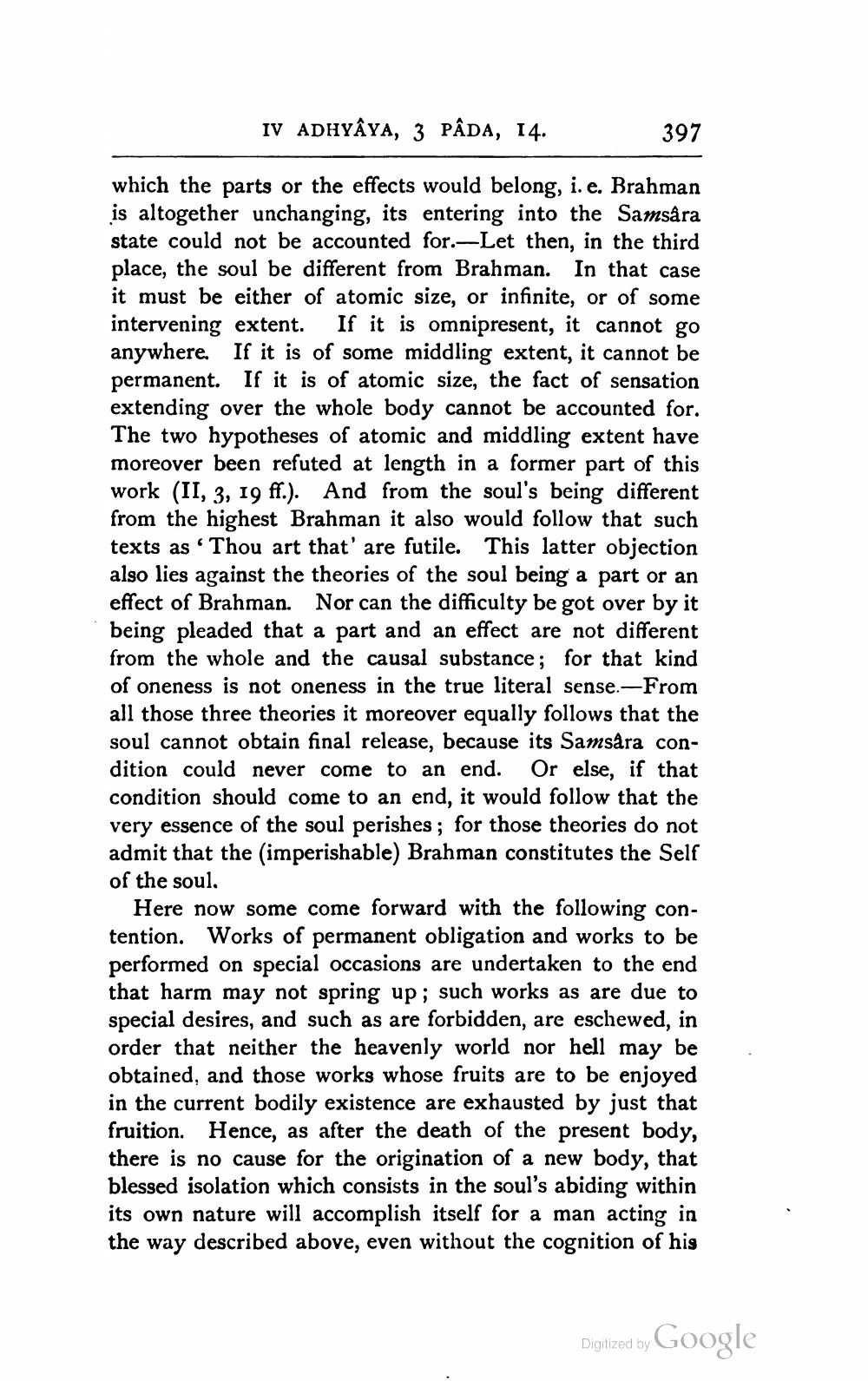________________
IV ADHYAYA, 3 PÂDA, 14.
397
which the parts or the effects would belong, i.e. Brahman is altogether unchanging, its entering into the Samsara state could not be accounted for.-Let then, in the third place, the soul be different from Brahman. In that case it must be either of atomic size, or infinite, or of some intervening extent. If it is omnipresent, it cannot go anywhere. If it is of some middling extent, it cannot be permanent. If it is of atomic size, the fact of sensation extending over the whole body cannot be accounted for. The two hypotheses of atomic and middling extent have moreover been refuted at length in a former part of this work (II, 3, 19 ff.). And from the soul's being different from the highest Brahman it also would follow that such texts as 'Thou art that' are futile. This latter objection also lies against the theories of the soul being a part or an effect of Brahman. Nor can the difficulty be got over by it being pleaded that a part and an effect are not different from the whole and the causal substance; for that kind of oneness is not oneness in the true literal sense.-From all those three theories it moreover equally follows that the soul cannot obtain final release, because its Samsara condition could never come to an end. Or else, if that condition should come to an end, it would follow that the very essence of the soul perishes; for those theories do not admit that the (imperishable) Brahman constitutes the Self of the soul.
Here now some come forward with the following contention. Works of permanent obligation and works to be performed on special occasions are undertaken to the end that harm may not spring up; such works as are due to special desires, and such as are forbidden, are eschewed, in order that neither the heavenly world nor hell may be obtained, and those works whose fruits are to be enjoyed in the current bodily existence are exhausted by just that fruition. Hence, as after the death of the present body, there is no cause for the origination of a new body, that blessed isolation which consists in the soul's abiding within its own nature will accomplish itself for a man acting in the way described above, even without the cognition of his
Digitized by
Digized by Google




